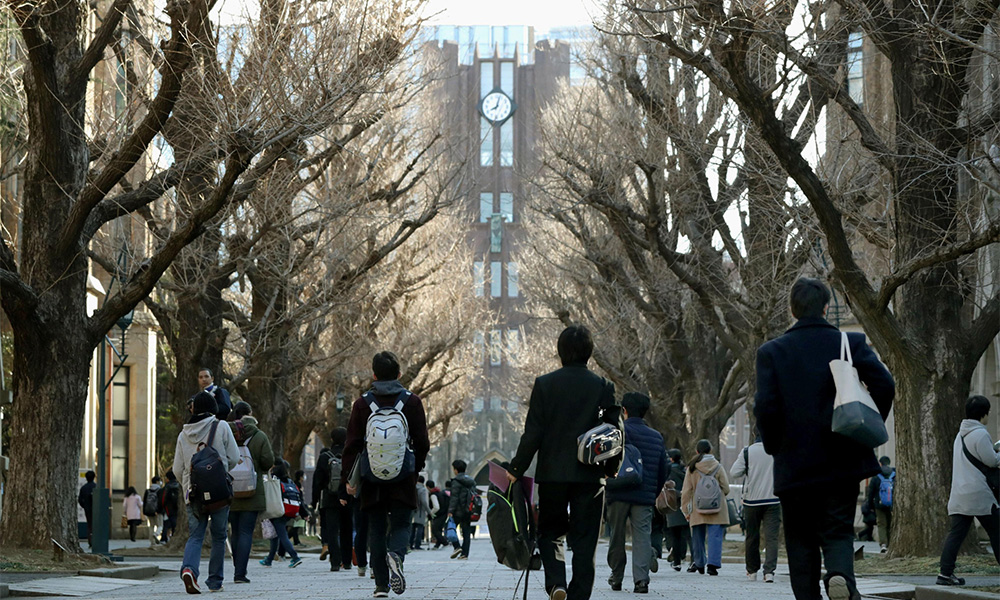Japan should raise its sales tax above the planned 10 percent to cope with increased social welfare costs as the population ages and declines, most economists in a Reuters poll said, with some recommending it should be over 20 percent.
Most economists also said the government's plan to allow more foreign workers into the country to alleviate a labour crunch would be positive for the economy because it would fill that gap.
Due to a declining birthrate and one of the world's highest average longevity, about 28 percent of Japan's population is 65 or older. That's projected to swell to more than 35 percent by 2040, straining the country's social security and health insurance systems.
To help fund those ballooning costs, Prime Minister Shinzo Abe's government plans to lift the sales tax to 10 percent in October from eight percent - barring an economic shock.
Doing so is risky because Japan's economy was hurt in 2014, the last time the sales tax was hiked, but many economists said 10 percent wasn't enough.
"To proceed with restoring fiscal health, raising the sales tax further in the future is unavoidable," said Harumi Taguchi, principal economist at IHS Markit.
"But at the same time it requires to reform social security and cut other government spending."
Out of 32 economists polled, 23 said it should be raised above 10 percent.
Asked to pick an appropriate level, 10 chose between 11-15 percent, eight said between 16-20 percent and five more said between 21-25 percent, the Dec 3-13 poll showed.
Four said 10 percent was an appropriate level and three said it should be cut to five percent, the survey found.
Shrinking labour pool
In a major policy shift, Japan enacted a law on Saturday to let in more foreign, blue-collar workers to ease a labour shortage that is particularly acute in construction and nursing, despite criticism it was too hastily crafted and risked exposing workers to exploitation.
The poll found 28 of 37 economists saying the move, which will allow up to 345,000 foreign blue-collar workers into the country, would be positive for the economy.
But some said society needed more time to become accepting of foreign workers. Homogeneity and social order are highly prized in Japan, so some worry an influx of foreigners will worsen public safety and disrupt daily life.
Some analysts cautioned the move could cause companies to spend less on labour-saving equipment.
"Over the mid- to long-term, we are worried that an increase in the number of low-paid foreign workers would push down labour costs, thus incentives for firms' investment on labour-saving and automation could decline," said Yosuke Yasui, senior economist at Japan Research Institute.
Stimulus steps
Economists expect the Bank of Japan to keep its pledge to guide short-term interest rates at minus 0.1 percent and long-term rates around zero percent at least until mid-2020, the poll showed.

Most analysts surveyed predicted the BOJ will scale down its stimulus steps for its next action, which won't happen until sometime in 2020 or later.
"With the consumption tax hike coming up and core inflation showing no signs of moving upwards, any tightening measures still seem far away," said Bjørn Tangaa Sillemann, an analyst at Danske Bank.
The economy will grow 0.9 percent during this fiscal year to March 2019, down slightly from the previous prediction of 1.0 percent, the poll showed.
Next October's planned sales tax hike will hurt the economy in the short term, economists said, predicting a sharp 3.2 percent annual rate of contraction in the fourth quarter and growth of 0.4 percent in the first quarter in 2020.
But for the fiscal year through March 2020, the economy will likely muster 0.8 percent growth.
Some economists responded to the survey before revised growth data for the third quarter was released.
The core consumer price index, which includes oil products but excludes fresh food prices, is expected to rise 0.9 percent in the current fiscal year, the poll showed.
Core CPI is seen rising even less next fiscal year - 0.7 percent - in projections that exclude the effects of the tax hike, meaning the BOJ's target for achieving two percent inflation remains as elusive as ever.
In last month's poll, they projected core CPI would average 0.9 percent next fiscal year.
- Reuters

